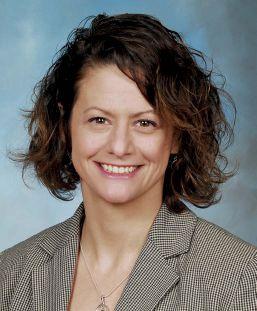
1 minute read
UND scientist’s Lyme disease research
BY KAYLA PRASEK
Catherine Brissette, an assistant professor in the Department of Biomedical Sciences at the University of North Dakota School of Medicine and Health Sciences, started studying spiral-shaped bacteria during her doctoral studies, and started studying Lyme disease as a postdoctoral fellow. That research followed her to UND.
The National Institutes of Health has awarded Brissette more than $380,000 to pursue a unique approach to fend off the effects of Lyme disease. Brissette’s study will look at how exposure to the bacteria that causes Lyme disease leads the DNA in cells to change and cause chronic inflammation.
“Controlled trials of long-term antibiotic treatment for post-treatment Lyme disease symptoms have failed to show benefits,” Brissette says in a statement. “If active infection is not responsible, what causes the persistent, lingering symptoms in patients treated with long-term antibiotics? Our data suggest (this bacteria) is a ‘hit-and-run’ pathogen, and the presence of live bacteria is not required to drive persistent inflammation.”
Specifically, Brissette’s study will look at a type of RNA called microRNA that, instead of communicating DNA code to build proteins in the cells, act to stop the process. Brissette’s previous research has shown that certain microRNA increase in cells after exposure to the bacteria that causes Lyme disease.
Ultimately, Brissette tells Prairie Business, she and her research team hope to “identify biomarkers that we can use either as diagnostic tools — does this patient have Lyme disease? — or as indicators of disease progression — this person has Lyme disease; when we see this biomarker it tells us the person is improving; if we see this marker we can predict this person is more likely to have prolonged symptoms and we need to treat more aggressively.”

The NIH funding will be used for materials and supplies for the research, as well as to support the salaries of technical staff and a graduate student. “The biggest expense is usually salaries,” Brissette says. “Grants are good for the local economy, because it means I can hire staff to help do the research.”
Other researchers working with Brissette are Timothy Casselli, a UND postdoctoral researcher, and Derick Thompson, a UND graduate student. PB
Kayla Prasek Staff Writer, Prairie Business 701.780.1187










